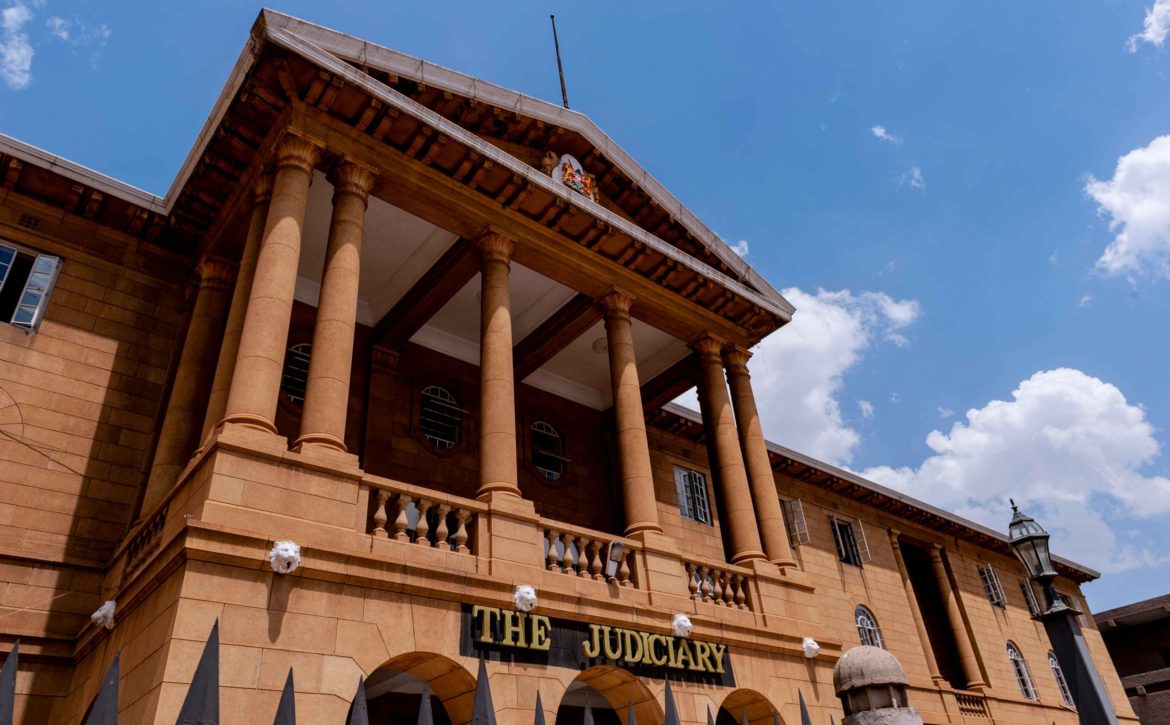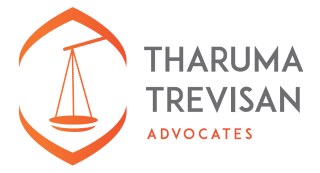
Civil Appeal Number 80 of 2017 Case Brief : Basil Criticos -vs- National Bank of Kenya (as the successor in Business to Kenya National Capital Corporation Limited “Kenyac”) and Kenya National Capital Corporation
By Quincy Jesse Kiptoo LL.B. (Hons), CPM, Dip in Law
In the year 1991, Basil Criticos (the Appellant/Guarantor) was a director and shareholder of a company called Agro Development Company. The Company borrowed the sum of Ksh. 20,000,000 from Kenya National Capital Corporation Limited (KENYAC) with interest at the rate of 19% per annum, and with discretion to the bank to vary the rate of interest.
The Appellant executed a legal charge dated 29th January, 1991 and a guarantee dated 22nd January, 1991 in favor of KENYAC over a property owned by him and another person as Tenants in Common. Liability, however, lay exclusively with the Appellant.
The property comprised a massive 15,994.5 acres or thereabouts. According to the charge, the chargor would pay the mortgage debt by 54 consecutive instalments, with the first instalment being paid from the date of drawdown and provided that a late payment charge at the rate of 1% would be levied from the date of default.
The borrower defaulted in making payment and the bank issued demand notices; one dated 24thApril, 1997 to the borrower; two dated 16th April, 1997 and 24th April, 1997 respectively, to the Appellant; and another dated 24th April, 1997 to a third party. The demand notices were in respect of a debt of Kshs. 66,477,929, together with interest, which continued to accrue at the rate of 35% per month.
The Appellant complained that the statutory demand notices were never issued to him but instead they were issued to the borrower who was not the owner of the charged property. Further, the Respondents sold the charged property, L.R No. 5865/2, illegally in contravention of injunctive court orders. The Appellant contended that he had made several attempts to redeem the charged property but the same was rejected.
The Bank denied the Appellant’s claims, arguing that since February 1996 when the loan was supposed to have been repaid in full, they had been faced with multiple injunction applications by the Appellant and the Borrower, which in effect considerably delayed recovery of the loan and escalated the debt on application of interest. They asserted that upon the sale of the security in 2007, they remained with a large unsettled balance from the borrower in the sum of Ksh. 106,636,945 as at February 2009.
Through another case, Milimani HCCC No. 132 of 2009, the Bank sued the principal debtor for the outstanding sum, and the Appellant for the sum guaranteed under the independent deed of guarantee. The judgment of the High Court aggrieved the Appellant and, after filing a notice of appeal, he followed it up with a memorandum of appeal.
The Court gave due consideration to the arguments made and authorities cited, and carefully analysed the entire record before it, it thereafter, crystallised the issues as follows:
- What was the nature and extent of the Appellant’s liability under the charge and the guarantee?
- Was the sale of the charged property illegal by virtue of existence of injunctive court orders?
- Was the suit property sold at an undervalue?
- Was the appellant entitled to an award of damages for loss of income/profits?
On the question of the nature of liability of the Appellant under the legal charge and the guarantee, the Appellant insisted that his liability was limited to Ksh. 20 million as stipulated in the guarantee. The trial court evaluated this issue and found that the guarantee constituted a separate security.
The Court of Appeal stated that in the context of the two legal instruments, it is by way of guarantee that the appellant undertook to pay the loan amount together with interest, costs and any charges thereof upon the borrower defaulting. The same undertaking by the Appellant was restated in the charge instrument. This deduction was further informed by the fact that the loan amount and the guaranteed amount was the same, that is, Ksh. 20 million.
The next question was how much the Appellant owed the bank. The statutory demand notices from 1997 demanded 66,477,929 at an interest rate of 35% per month. After the sale of the property in 2007, they were demanding from the borrower the sum of Kshs. 106,636,945.
The charge instrument provided for interest to be charged at 19% per annum, with a penalty of 1% to be levied on each late payment. While the Court noted that the charge had a condition granting the Bank the exclusive right to vary the rate of interest at any time without advising the chargee, it found it unconscionable and morally wrong that the bank would raise the interest rate from 19% per annum to the impossibly high rate of 35% per month, amounting to 420% per annum!
The Appellant pleaded that this compounded interest largely contributed to the heavy indebtness. In cross-examination, Basil agonised that he adhered to the terms for a few years until the rates went to over 35% and he was unable to cushion the difference. The situation was further aggravated by the fact that Basil made attempts to redeem the charged property but the same were declined by the Bank. The conduct of the bank was admonished. The Court refused to enforce the unconscionable contract and interest.
The next issue was whether the sale was illegal by virtue of existence of injunctive court orders. Status quo orders were ordered on 24th July, 2007 and were even extended beyond February, 2008. The sale took place on 5th September, 2007. The sale was therefore conducted in contempt of Court orders.
As to whether the suit property was sold at an undervalue, the Appellant placed heavy reliance on the evidence of his valuer, Mr. Mwaka Musau who prepared a report. The report was elaborate, breaking down the various values of the land, buildings, sisal, quarry and road network totalling Ksh. 3,028,890,000. His evidence was unimpeached during cross examination. The Appellate Court therefore found his evidence to be solid in content and uncontroverted.
Consequent thereto, the Court found that the Appellant was entitled to the proven value of his property as special damages. The Court however qualified the same. It reduced the value of the sisal crops on the land by half since farming operations had ceased, it discounted 10% of the valuation report as it was done two years after the sale. This left a reasonable and fair value of Kshs.2,284,101,000 as special damages.
The Court found that the Appellant was treated by the respondents in a shabby and wholly unacceptable, if not, tyrannous manner throughout the entire transaction. In particular, the Bank’s conduct of charging the appellant manifestly excessive interest rates, declining his offers to redeem the debt and then proceeding to sell the property at less than the amount he offered, and at a gross under sale, was a plain breach of a bank’s duty to act with care and in good faith.
The Court quoted that “The Appellant may not have been a model guarantor but, like Shakespeare’s King Lear, he definitely was a man more sinned against than sinning. And he was entitled to the aid of the law.”
The Court set aside the Judgment of the High Court which had dismissed the case and allowed the appeal.
It declared that:
Basil is discharged from all liability arising from the charge and guarantee;
The Bank executed its statutory power of sale in contempt of court orders;
The suit property was sold at a gross undervalue; and
Specific Damages to the tune of Kshs. 2,284,101,000 awarded to Basil.
Implications of Judgment
The award for specific damages is twice the bank’s net income of Sh1.1 billion recorded in the year ended December,2021.
The decision comes after National Bank of Kenya was acquired by KCB Group.
The Court of Appeal has reaffirmed the Court’s discretion to decline the enforcement of unconscionable contracts. This is timely as we are in the age of widespread predatory digital lenders.
This was one of the last Judgments of Nambuye J who has served the judiciary for over 30 years. She now proceeds for retirement and we wish her well.
Given the magnitude of the judgment it is likely that an appeal may be proffered to the Supreme Court. Only time will tell.
Latest Posts
Step by Step Guide to Subdvision of Land in Kenya
Agnetah Muli LL. B, KSL Dip. What is Subdivision? The process of subdivision involves the division of land into two or more parcels. The purpose is to...
COMPREHENDING REDUNDANCY IN EMPLOYMENT LAW – KENYA
“Fairness in all forms of termination is the staple of labour law”- Anon By Quincy Jesse Kiptoo LL.B. (Hons), CPM, Dip in Law The word Redundancy...

